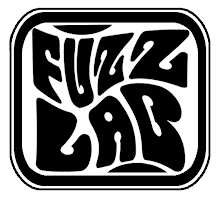
The back story: Prior to joining the equally fabled Pentagram, Randy Palmer enlisted his friend and Pentagram drummer Geof O'Keefe, Pentagram vocalist Bobby Liebling, and high school friend Mike Matthews (bass) to help him record some of his musical ideas. These recordings were made using a Roberts 771X 1/4" reel-to-reel tape deck in Pentagram's rehearsal space and Randy's living room. The sonic quality is pretty rough and varies wildly, but considering they had 2 tracks to work with and were bouncing tracks(and therefore also mixing on the fly as they went) back and forth to add extra tracks Sgt Pepper style, it turned out fairly well. In fact, on some songs it enhances the grittiness and hardcore nature of the music.
One of the only problems I have with this album is Bobby Liebling's performance. His delivery is pretty flat (I'm not referring to pitch, but energy). He kind of sounds like Iggy Pop (don't get me wrong, I love Iggy) combined with a heroin-infused Velvet Underground Lou Reed. He sounds much better on Pentagram's First Daze Here, so I'm not sure if he just didn't give it his all because it wasn't his project or what, but I think this is partly why it took me a while to get into the record. Get past the lackluster Liebling and you've got some of the heaviest rock of the early 70's.
Last Call, a melancholy ballad, is followed by Drive Me to the Grave, which sounds like a Sabbath Vol. 4 era song. Into the Grave is another minor ballad, but it's got a better groove than Last Call and some nice soloing. Unfortunately one track of lead guitar is buried in the mix. Skinned, which is introduced with a blood curdling scream, is an uptempo rocker which, at times, makes me think of early Fu Manchu.?. Hmm. Touch the Sky is another Vol. 4 trip.
Tracks 1-12 were all from '73-74, while the three songs that close the album are from '79, after Palmer's tenure with Pentagram and definitely have a different feel to them.
Time Bomb is a total Iggy and the Stooges Raw Power vibe. Nighttime Killers has a NWOBHM gallop to it with a proggy solo section. Axe to Grind is actually Geof O'Keefe's composition. It is a cool prog-metal instrumental that very much sounds like 1979 with twin harmony guitar melodies. Very different from the earlier Bedemon, but a rockin' jam nonetheless with some smokin' leads.
The album kind of falls into three sections. The first 1/3 is the heaviest and doomiest with the best riffage, and the most St Vitus-ish. The middle 1/3 kind of sags a little, but still has rockin' moments. The last 1/3 picks up the pace again, but in a less doomy, more late 70's metal kind of way. Like I said earlier, I dig it more than Pentagram First Daze Here, and again, if Liebling would've delivered more passionate performances, it would have sent this album into the territory of greatness.
My rating is:
Riff Density 9
Riff Caliber 9
Post Blues Factor 10
Groove Factor 8
Dig It 8








